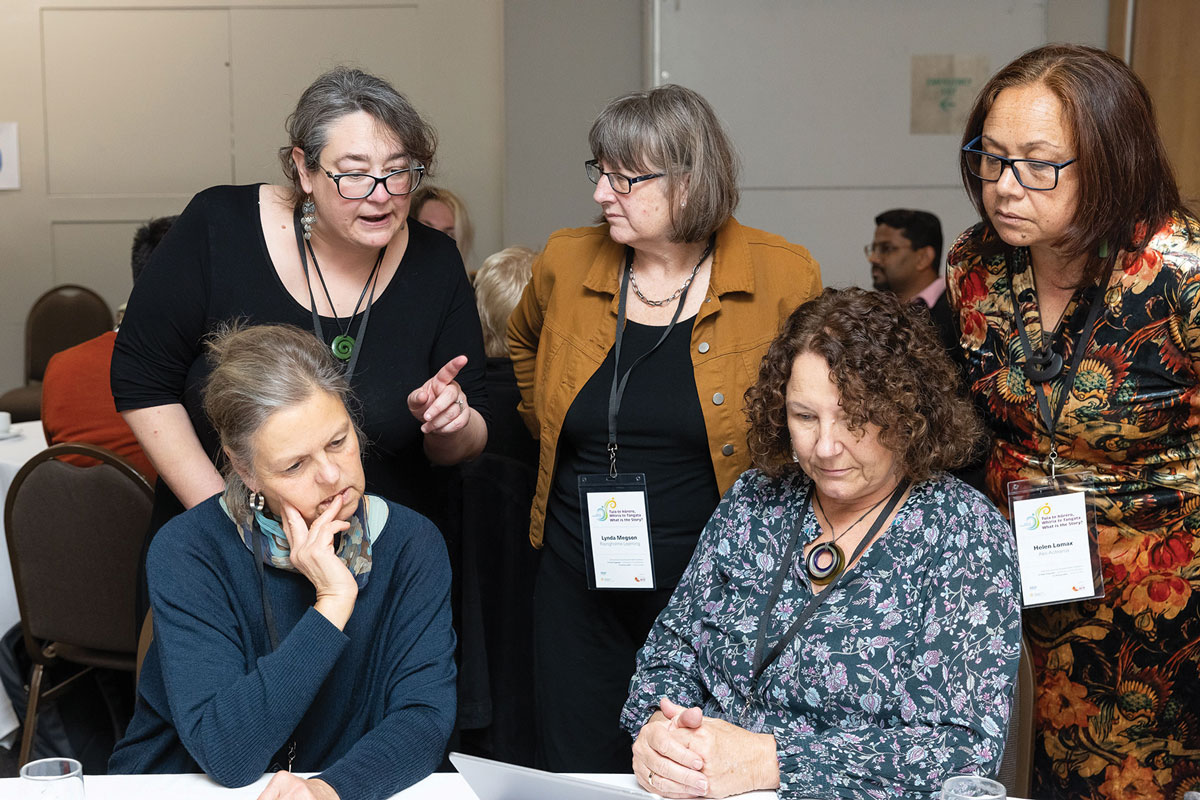
Mandy Henk’s ACE Sector Conference workshop – A Bit Sus – flowed perfectly from the presentation by Dr Andrew Chen, with her focus on tackling the misinformation avalanche.
Disinformation and misinformation are nothing new. Since time began, we have been exposed to information that is either blatantly incorrect or is presented in a way that is designed to influence our thinking and ideas. What has changed is the impact of digitisation which has made it far easier to generate and spread information to reach wide audiences via the internet. This is further exacerbated by the drive to maximise audience numbers for financial benefit using a medium that has little if any regulatory restrictions.
Mandy Henk is CEO of Tohatoha, an organisation that supports New Zealand to become a digital nation with a digitally sophisticated population.
Mandy’s background is as a librarian, more specifically, an academic librarian. It’s a role she held for more than 20 years until taking the lead at Tohatoha.
“The original focus at Tohatoha was on sharing information on copyright and opportunities for open access to knowledge. The internet and other digital technologies have opened a whole new world, but the internet is made by people, and people aren’t perfect. Who gets to decide what the rules are on the internet? Who gets to financially benefit from things like data?”
She says they were running sessions for educators and librarians about this aspect when they realised that there was a very real need to help people understand our changing knowledge environment. “Since 2005 the way we access and process information has changed dramatically and that change didn’t come with the skills base to help navigate the new world. Everything we had been taught about how to access information and knowledge was no longer relevant. It was no longer a case of walking into the local library and checking an Encyclopaedia Britannica.”
As a result, Tohatoha made the decision to tackle the issue of misinformation. In 2020 the “A Bit Sus’ initiative got underway to work with school librarians across the country to tackle the spread of misinformation. Launched jointly by the School Library Association of NZ Aotearoa and Tohatoha, the programme delivered training on best practices for supporting youth and schools in countering misinformation and preventing its spread.
“The teaching programme has a few core components,” Mandy says. “We start by outlining the problem of misinformation and disinformation. Misinformation can spread so quickly via social media networks these days that it can be hard to spot the difference between real and fake news. Much of the misinformation is created to be divisive and sow chaos. It is about making it hard for democracy to function.”
Disinformation works because it disrupts the process of collective consensus building. As worldviews built on harmful narratives spread and become cemented as organising platforms for reactionaries, traditional institutions like media, the civil service, schools and the health system find their own positioning as neutral participants in society threatened.
“Our sessions start off by teaching people how to identify information sources. We then move onto interventions and tools that can be used to help counter movements like this. Some of these tools require action from governments or online platforms. But not all of them.” Mandy says as teachers we can help set social norms around accessing and acting on information and around how we process and potentially disagree or debate these issues.
“We also teach lateral reading, which is the act of evaluating the credibility of a source by comparing it with other sources. This allows readers and researchers to analyse and verify evidence, contextualise it and explore it for potential weaknesses. Our sessions demonstrate how to do this.”
Pre-bunking is a technique to build pre-emptive resilience to misinformation. It’s a tool to help prevent misinformation before it takes hold. It essentially works by presenting counter arguments, tactics, and facts before misleading and manipulative information gains ground. The focus is on addressing the practices of manipulation and misinformation rather than opposing or challenging misinformation or telling people what they need to believe.
“It is probably easier to undertake pre-bunking within a school setting because it is easier for teachers to know what students are looking at and viewing, whereas in a community setting it takes a significant amount of research. However, it is still possible,” concludes Mandy.
